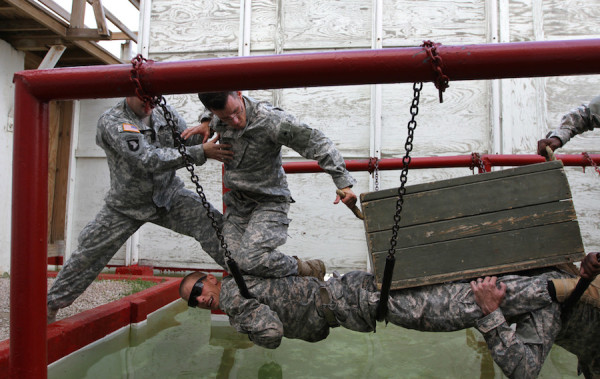

Editor’s Note: This article has been modified from its original version, which was published on “The Military Leader,” a blog by Andrew Steadman.
Recently, while discussing the separation boards and low promotion rates in light of a downsizing Army, a fellow officer commented, “These trends are going to create a cut-throat Army. Everyone is going to watch their backs and protect themselves to make sure they get promoted. I’m not looking forward to serving in that environment.”
With all due respect to his perspective and opinion, that’s the wrong way to approach the coming years in our Army. And specifically, that’s the wrong attitude to have if you want to get promoted and continue to lead soldiers. Here’s why.
This isn’t poker
Every service member has a choice to make in an environment that becomes more competitive. You can:
• Keep your cards close, conceal your leadership talents, hoard resources for your own team, and stand idly by as adjacent leaders falter, all in hopes of looking good at the expense of those around you.
• Or, you can show your hand to the entire table, share your tips and lessons, publicize your failings, volunteer for extra missions, and be generous with your time and resources.
Here’s a key question for you: Which subordinate do you think your boss wants on the team?
I don’t really need to answer that question because we all know that the best teams are made up of selfless people who care about enabling others and serving the organization. They know that everyone will be better off when everyone is performing better. So, they share knowledge, align efforts, and support others, even at the expense of their own advantage.
Who’s team are you serving?
Some people believe they won’t get any of the credit if they show their hand to everyone else. This belief is shortsighted. People who devote time to improving those around them cannot help but be noticed in a positive way. And good talent shared prolifically cannot remain a secret. The real benefit will come when your boss sees his entire team strengthened by your efforts, not just your team.
Putting it into practice
Here are some ways in which military leaders can respond to the increasingly competitive environment by building the teams around them:
• Share every good idea you have.
• Publicize failures (and subsequent lessons) that other units might also fall victim to. This is particularly important for serious incidents or deaths, where key indicators often point to a tragic event, but go unnoticed.
• Send out products and tools that are making a difference for your unit.
• Share your policy letters and leadership philosophy.
• Copy your teammates when emailing your commander about an important topic.
• Before you engage your commander on that topic, consult your fellow leaders to make sure you’re on the same page. This not only gives you a sanity check on your ideas, but presents a unified front to the commander.
• Invite other teams to attend your morale, competition, and family events.
• Invite them to your professional development events, too.
• Volunteer your unit to take on the less-desirable tasks that come down from higher.
• Be the first to offer resources like ammunition and equipment when other units are in a bind.
• Share your training and live-fire ranges at every opportunity.
• Volunteer to provide observer/controller coverage for adjacent units that are conducting important training.
• Coach your subordinate key staff members to be personable, patient, and forgiving with other staffs, particularly higher headquarters.
More articles from The Military Leader: